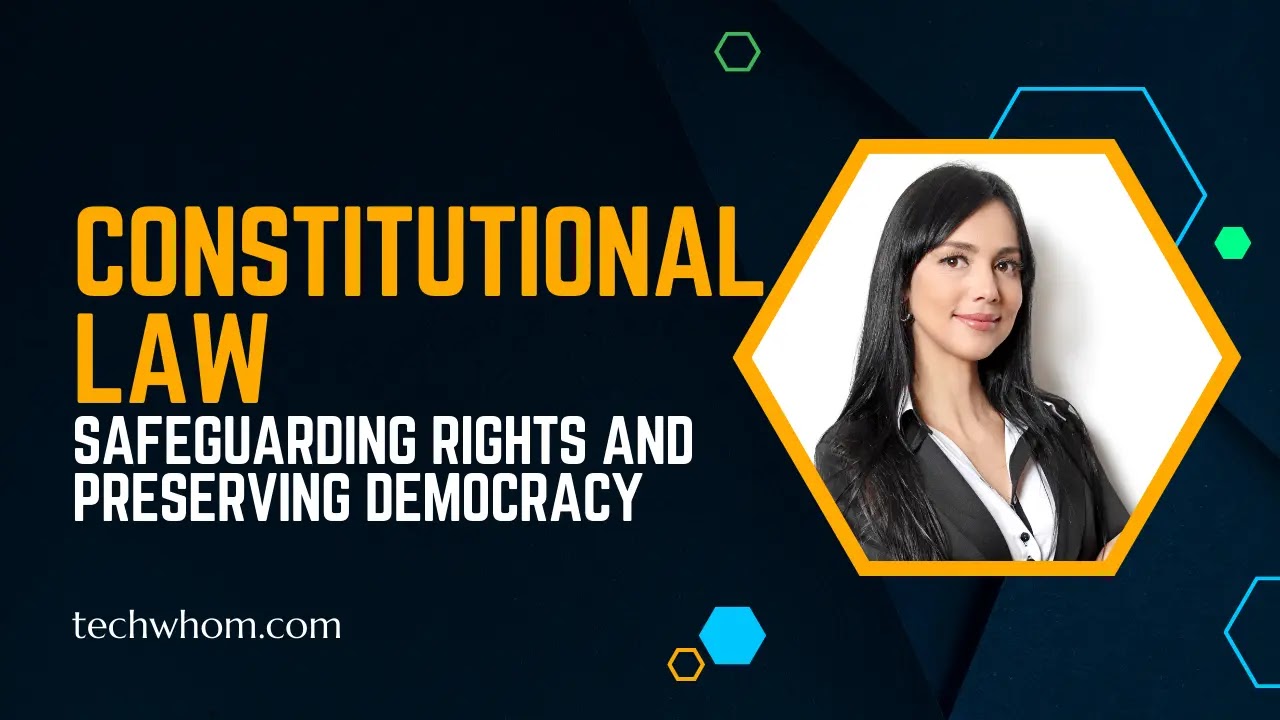Constitutional law plays a critical role in the legal system of a nation, providing the framework for the relationship between the government and its citizens. It involves the interpretation and application of a country's constitution, which outlines fundamental principles, rights, and the structure of governance. This article will delve into the significance of constitutional law, covering its definition, key components, and its pivotal role in protecting individual rights, ensuring the separation of powers, and upholding democratic values.
Understanding Constitutional Law
- Definition and Scope
- Constitutional Framework
The constitution serves as the supreme law of the land, establishing the fundamental framework for governance. It outlines the basic structure of the government, defines the rights and responsibilities of citizens, and sets out the mechanisms for amending the constitution when necessary.
Fundamental Principles
- Rule of Law
- Separation of Powers
- Checks and Balances
Protection of Individual Rights
- Bill of Rights or Fundamental Rights
- Freedom of Speech and Expression
- Right to Privacy
- Equality and Non-Discrimination
Judicial Review
- Role of the Judiciary
- Judicial Interpretation of the Constitution
- Ensuring Constitutionality of Laws
Constitutional Amendments
- Process and Requirements
- Balancing Stability and Flexibility
Federalism and Devolution
- Distribution of Powers between Central and Regional Governments
- Autonomy and Self-Governance
Constitutional Challenges and Resolutions
- Constitutional Interpretation
- Resolving Conflicts and Constitutional Crises
- Constitutional Reforms
Contemporary Issues in Constitutional Law
- Technology and Privacy Rights
- Balancing National Security and Civil Liberties
- Emerging Social and Cultural Rights
Conclusion:
Constitutional law serves as the bedrock of a nation's legal system, ensuring the protection of individual rights, maintaining the separation of powers, and upholding democratic values. Its fundamental principles, such as the rule of law and the separation of powers, promote fairness, accountability, and checks and balances.Constitutional law evolves through amendments and reforms to adapt to changing societal needs while preserving stability. By addressing contemporary challenges and interpreting constitutional provisions, constitutional law remains vital in safeguarding rights, resolving conflicts, and preserving democracy in an ever-changing world.
 Constitutional law plays a critical role in the legal system of a nation, providing the framework for the relationship between the government and its citizens. It involves the interpretation and application of a country's constitution, which outlines fundamental principles, rights, and the structure of governance. This article will delve into the significance of constitutional law, covering its definition, key components, and its pivotal role in protecting individual rights, ensuring the separation of powers, and upholding democratic values.
Constitutional law plays a critical role in the legal system of a nation, providing the framework for the relationship between the government and its citizens. It involves the interpretation and application of a country's constitution, which outlines fundamental principles, rights, and the structure of governance. This article will delve into the significance of constitutional law, covering its definition, key components, and its pivotal role in protecting individual rights, ensuring the separation of powers, and upholding democratic values.